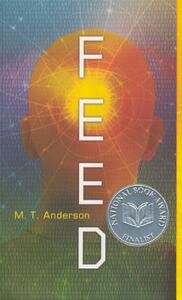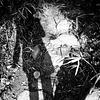Take a photo of a barcode or cover
- Great group read experience with Sergio, Sasha and Reid haha
- Preachy and formulaic at times tbh
- Linguistically. I HATED IT!!!!!! The worst!! Why do you hate young people and young women? Why are you using their speech style to signal a lack of intelligence? I hate it!! SoooOoo smart to have even the adults talk "stupid" because they're all so """stupid""""" . Ugh
- Weird political and environmental "foreshadowing". When the president tells people to shut up or calls them stupid :|||| while people in South America starve :||||
- Also targeted advertisement foreshadowing??? Wow
- Can hardly believe when this book was written due to its relevance to the current political moment. Honestly the most interesting part of reading this
- Drippy plastic dinosaur clothes
- Preachy and formulaic at times tbh
- Linguistically. I HATED IT!!!!!! The worst!! Why do you hate young people and young women? Why are you using their speech style to signal a lack of intelligence? I hate it!! SoooOoo smart to have even the adults talk "stupid" because they're all so """stupid""""" . Ugh
- Weird political and environmental "foreshadowing". When the president tells people to shut up or calls them stupid :|||| while people in South America starve :||||
- Also targeted advertisement foreshadowing??? Wow
- Can hardly believe when this book was written due to its relevance to the current political moment. Honestly the most interesting part of reading this
- Drippy plastic dinosaur clothes
fast-paced
Plot or Character Driven:
Character
Strong character development:
Complicated
Loveable characters:
No
Flaws of characters a main focus:
Yes
Incredible that this was written in 2002. Exceptional.
I was originally given this book in seventh or eighth grade and I never finished it then. I found Titus to be obnoxious and hard to relate to. I found the slang used in the book confusing. It took me out of the story. I can see, now, that that is exactly what M.T. Anderson is going for in "Feed."
From birth, the main character of "Feed" is the product of constant advertising, dopamine fulfillment, and radical consumerism. Because he has never had to take care of his physical appearance, attend school, or learn, Titus is quickly bored by every new stimulus that comes his way. Titus has no attention span and cannot stomach enduring "negative" emotions because he has always relied on the Feed for instant gratification. Titus struggles with viewing other people, especially women, as little more than a means for his next dopamine hit. Because of this, many of the characters come across as one-dimensional, because their one dimension is all that Titus feels is important about them. Titus is the textbook definition of an unreliable narrator.
The slang that is used in the book is INTENDED to be confusing to its readers. We are meant to feel like "outsiders" to the rich material world that Titus and his friends live in. We are meant to empathize with Violet and her father. By the end of the book, we are meant to hate almost every character in the book for allowing Violet to come to the tragic end that she does.
"Feed" is incredible for the ways in which it predicted much of the culture that one can observe with just a quick scroll through of a Tik Tok FYP. Hyper-consumerism, lowering attention spans, over-sexualization, and desensitization to the horrifying consequences of capitalism are just some of the themes that this YA novel grapples with.
I've been reading this book with my remedial, ninth-grade, male students and many of them have hailed it as the first book in a long time to interest them. With the right amount of supervision, this book is an incredibly relevant tale for reluctant high school readers.
In 2002, M.T. Anderson retroactively wrote a cautionary novel FOR the generation that watches Young Sheldon clips with Subway Surfers gameplay streaming underneath ABOUT the generation that watches Young Sheldon clips with Subway Surfers gameplay streaming underneath.
From birth, the main character of "Feed" is the product of constant advertising, dopamine fulfillment, and radical consumerism. Because he has never had to take care of his physical appearance, attend school, or learn, Titus is quickly bored by every new stimulus that comes his way. Titus has no attention span and cannot stomach enduring "negative" emotions because he has always relied on the Feed for instant gratification. Titus struggles with viewing other people, especially women, as little more than a means for his next dopamine hit. Because of this, many of the characters come across as one-dimensional, because their one dimension is all that Titus feels is important about them. Titus is the textbook definition of an unreliable narrator.
The slang that is used in the book is INTENDED to be confusing to its readers. We are meant to feel like "outsiders" to the rich material world that Titus and his friends live in. We are meant to empathize with Violet and her father. By the end of the book, we are meant to hate almost every character in the book for allowing Violet to come to the tragic end that she does.
"Feed" is incredible for the ways in which it predicted much of the culture that one can observe with just a quick scroll through of a Tik Tok FYP. Hyper-consumerism, lowering attention spans, over-sexualization, and desensitization to the horrifying consequences of capitalism are just some of the themes that this YA novel grapples with.
I've been reading this book with my remedial, ninth-grade, male students and many of them have hailed it as the first book in a long time to interest them. With the right amount of supervision, this book is an incredibly relevant tale for reluctant high school readers.
In 2002, M.T. Anderson retroactively wrote a cautionary novel FOR the generation that watches Young Sheldon clips with Subway Surfers gameplay streaming underneath ABOUT the generation that watches Young Sheldon clips with Subway Surfers gameplay streaming underneath.
adventurous
emotional
Plot or Character Driven:
Character
Strong character development:
Yes
Flaws of characters a main focus:
Yes
A Clockwork Orange for the digital age, told with the satirical yet melancholy flair of David Foster Wallace's Infinite Jest.
I read this book again, for book club, and enjoyed it even more. It seemed frighteningly relevant.
It took a bit to get into, to pick up the lingo, but this was a wonderful teen love story told in the near future. An inventive and wonderful piece of writing.
It took a bit to get into, to pick up the lingo, but this was a wonderful teen love story told in the near future. An inventive and wonderful piece of writing.
I absolutely despised all the characters. Reminded me of reading Clockwork Orange. A LOT more toned down, but really, everyone is despicable. And the one character who isn't, well, you'll see...
She said, “Look around you.” I did. It was the mall. She said, “Listen to me.” I listened. She said, ” I was sitting at the feed doctor’s a few days ago, and I started to think about things. Okay. All right. Everything we do gets thrown into a big calculation. Like they’re watching us right now. They can tell where you’re looking. They want to know what you want.”
“It’s a mall,” I said.
“They’re also waiting to make you want things. Everything we’ve grown up with—the stories on the feed, the games, all of that—it’s all stream-lining our personalities so we’re easier to sell to. I mean, they do these demographic studies that divide everyone up into a few personality types, and then you get ads based on what you’re supposedly like. They try to figure out who you are, and to make you conform to one of their types for easy marketing. It’s like a spiral: They keep making everything more basic so that it will appeal to everyone. And gradually, everyone gets used to everything being basic , so we get less and less varied as people, more simple. So the corps make everything simpler. And it goes on and on.”
This passage from M. T. Anderson’s Feed sums up the main ideas of the whole novel, a frighteningly relevant warning against falling prey to the manipulations of a society where, as Anderson puts it, we are challenged “to be better consumers rather than better people.”
Our world revolves around marketing and advertising. Ads are on billboards, posters, magazines, newspapers, websites. Our television programs are overrun by commercials. Everywhere, everywhere, we are told what we want, what we need. We are not people. We are consumers—waiting to be informed of the newest trends, the most stylish fashions, the best car, the best computer, the best cell phone network. We get jobs and make money so we can spend it on all of these things we are told we “need.” We follow the whims of a feed, although it’s not yet in our heads. It’s being broadcast all around us.
Social Media allows us to practically upload ourselves onto the world wide web where anyone can look us up, click through our personal photos, read all of our conversations with friends, and put our life and identity together like a puzzle, status update by status update. The more information we reveal on these sites and the more time we spend tapped in to this digital plane of consciousness, the faster things like solitude, privacy and anonymity fade into obscurity. The more we lose ownership of ourselves.
With iPhones and Androids—we have endless amounts of information right at our fingertips. In some ways, this kind of access is liberating and empowering. However, it can also be a crutch. Because the characters in Feed all have this immediate access to whatever information they want, education becomes obsolete and digital files take the place of knowledge. Who needs to learn anything when you can just look it up? And how, if this technological connection is shut off, will we survive without it? What is the price we pay by becoming dependent on technology?
“It’s a mall,” I said.
“They’re also waiting to make you want things. Everything we’ve grown up with—the stories on the feed, the games, all of that—it’s all stream-lining our personalities so we’re easier to sell to. I mean, they do these demographic studies that divide everyone up into a few personality types, and then you get ads based on what you’re supposedly like. They try to figure out who you are, and to make you conform to one of their types for easy marketing. It’s like a spiral: They keep making everything more basic so that it will appeal to everyone. And gradually, everyone gets used to everything being basic , so we get less and less varied as people, more simple. So the corps make everything simpler. And it goes on and on.”
This passage from M. T. Anderson’s Feed sums up the main ideas of the whole novel, a frighteningly relevant warning against falling prey to the manipulations of a society where, as Anderson puts it, we are challenged “to be better consumers rather than better people.”
Our world revolves around marketing and advertising. Ads are on billboards, posters, magazines, newspapers, websites. Our television programs are overrun by commercials. Everywhere, everywhere, we are told what we want, what we need. We are not people. We are consumers—waiting to be informed of the newest trends, the most stylish fashions, the best car, the best computer, the best cell phone network. We get jobs and make money so we can spend it on all of these things we are told we “need.” We follow the whims of a feed, although it’s not yet in our heads. It’s being broadcast all around us.
Social Media allows us to practically upload ourselves onto the world wide web where anyone can look us up, click through our personal photos, read all of our conversations with friends, and put our life and identity together like a puzzle, status update by status update. The more information we reveal on these sites and the more time we spend tapped in to this digital plane of consciousness, the faster things like solitude, privacy and anonymity fade into obscurity. The more we lose ownership of ourselves.
With iPhones and Androids—we have endless amounts of information right at our fingertips. In some ways, this kind of access is liberating and empowering. However, it can also be a crutch. Because the characters in Feed all have this immediate access to whatever information they want, education becomes obsolete and digital files take the place of knowledge. Who needs to learn anything when you can just look it up? And how, if this technological connection is shut off, will we survive without it? What is the price we pay by becoming dependent on technology?




